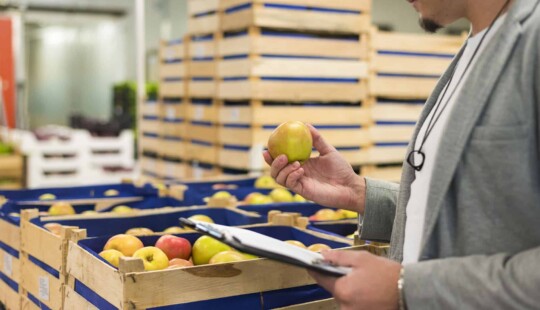Future breakthroughs in renewable energy won’t save the environment – the UK must act now using existing technologies. That was the stark message from the UK’s Chief Scientific Advisor, Sir Patrick Vallance, speaking ahead of the international G7 conference in Cornwall earlier this year. If that is the case, and there is no reason to doubt him, the UK faces a massive challenge in locating and scaling up existing sustainable technologies to meet the country’s climate goals by 2050.
Luckily, there are already some great projects underway. One example is Bennamann, a pioneering cleantech company in the farming county of Cornwall that collects fugitive methane and turns it into “better-than-zero-carbon” fuel. Bennamann captures the biogas – gases from organic matter – from farms and processes, converting it into green fuel that’s collected from farms and aggregated with fuel from other sites and sold into the energy market.
Renewable Zero Carbon Fuel from Slurry Lagoons
Dr. Chris Mann, chairman and CTO, started the company when he tried to take his house off-grid using renewable energy. A former physicist from the space industry, he stumbled across the concept in Florida when he heard a local radio station warning of the dangers of exploding grass clippings in domestic garages. Fascinated by the levels of energy generated, he soon realized that the methane given off by slurry lagoons in his native Cornwall could be captured and turned into fuel.
“Biomethane is a naturally occurring gas that is produced when organic matter such as farmyard manure breaks down. It is typically a harmful greenhouse gas that contributes towards global warming,” said Dr. Mann. “By capturing it from the material before it is emitted to the atmosphere, it can be used as an affordable, versatile, renewable zero carbon or, in the case of manure, better-than-zero-carbon fuel instead.”
Circular Economy Powers Local Energy Revolution
Sourcing energy from local waste resources, distributing energy to local people, and creating local jobs without needing a connection to an electricity grid or gas main is a powerful circular economy strategy. Bennamann can produce 4,600 kilograms of methane per hectare of grass, roughly equivalent to seven and a half thousand liters of petrol from two football pitches.
Bennamann’s expansion plans to help address renewable energy imperatives are well underway. Based at the Aerohub Business Park adjacent to the Cornwall Airport Newquay airfield, they have their own custom-built manufacturing facility as well as a research and development farm near Truro.
But they haven’t stopped there. With an investment from Case New Holland Industries, Bennamann is poised for global expansion, busy rolling out prototypes and first-of-a-kind commercial products across the fugitive and biomethane value chain. Tractors fueled by methane and an electric car charger that can charge a Tesla in an hour are also part of the development program. With over 30 existing staff, the company expects to double in size during the next few years.
Digital ERP Tech Supports Clean Energy Innovation
To keep pace with its high-growth plans, Bennamann recently teamed up with SAP and partner In Cloud Solutions to select SAP Business ByDesign as its enterprise resource planning (ERP) software solution. The objective is to have an intelligent digital core connecting business processes and people as the company expands. Starting with finance, Bennamann will be able to track activities in real time and eventually expand the scope of the project to include procurement and other areas as the organization grows.
Climate Change Starts Local to Go Global
In a recent public lecture, Dr. Mann explained how Bennamann’s technology has the potential to remove one-quarter of all the man-made methane from the environment, which, as a greenhouse gas, is partially responsible for climate change. Using fugitive methane to run a gas tractor removes the equivalent of 680 cars off the road annually.
“We are proud to be a Cornish company that has the potential to radically change the global energy market, and we look forward to putting Cornwall at the forefront of pioneering renewable energy innovation,” said Dr. Mann.
With breakthrough technologies and business models, Bennamann is moving ahead to help address climate change while creating rural jobs and green growth for the post-pandemic recovery and providing an alternate source of sustainable fuel – all from farmyard waste and managed grassland. This is a renewable energy model prime for replication across the globe.
Follow me @smgaler.
This blog also appeared on SAP BrandVoice on Forbes.



